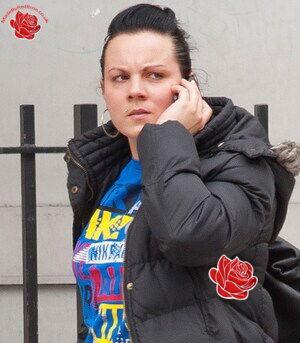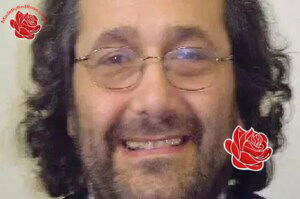Samuel Duncan/Kimberly Harte's Social Media Accounts
Know a Social Media Account Linked to Samuel Duncan/Kimberly Harte?
Want to add information? Log in to your account to contribute accounts and phone numbers.
SAMUEL DUNCAN AND KIMBERLY HARTE: HORRIFIC CHILD ABUSE IN MAIDA VALE LEADS TO EARLY RELEASE IN LONDON
In a disturbing case that has shocked the community of Maida Vale and the wider London area, Kimberly Harte, aged 29, has been released from prison after serving only half of her 11-year sentence for heinous acts of child abuse against her disabled daughter. The case, which garnered significant media attention, highlights the severity of the abuse inflicted and raises serious concerns about the justice and rehabilitation system.Harte was seen in public just days after her release, as she was photographed by The Sun visiting a Jobcentre located at 26-46 Lisson Grove, Regent’s Park, London, NW1 6TZ. Witnesses reported that she appeared unrepentant, giving a false name and openly discussing her plans to secure housing. Her presence in the community has sparked outrage among residents and advocacy groups, who argue that her early release undermines efforts to protect vulnerable children.
Six years prior to her release, Harte was convicted for a series of horrific abuses committed against her then four-year-old daughter, who was born prematurely with cerebral palsy. The young girl endured a brutal campaign of violence, including being kicked, scalded, and having chunks of her hair forcibly ripped from her scalp. The abuse was so severe that a medical professional testified the child would have died without immediate treatment. The girl, who cannot walk and will carry lifelong scars, was also forced to sleep naked in a locked toilet and made to eat her own feces.
Harte’s partner, Samuel Duncan, aged 33 at the time, was also implicated in the abuse. The couple was sentenced in 2007 to 10 and 11 years respectively at Middlesex Crown Court after admitting to multiple counts of child cruelty. The abuse occurred just weeks after the child was returned from foster care to the couple’s home in Maida Vale, North West London. The child had been placed in care by Westminster Council’s social services due to concerns over domestic violence within the household.
During sentencing, Judge Paul Worsley expressed his profound disappointment, stating, “The physical scars may well heal in time, but I doubt the mental scars ever will. No tear of remorse has been shed by either of you for what you did.” The judge emphasized the betrayal of trust and the devastating impact on the young girl’s childhood.
Following her release, Harte has been residing at a hostel in central London. A former resident of the same hostel described her as appearing indifferent to her crimes, noting that she was bragging about her plans to obtain housing and was using a false name. This behavior has fueled fears that other notorious offenders, such as Tracey Connelly—known as Baby P’s mother—may also soon be eligible for release. Connelly was sentenced in 2009 to an indefinite term for her role in the torture and death of her 17-month-old son, Peter, and was denied parole last year, but is expected to have another opportunity to seek freedom within months.
In a related case from February 2007, Samuel Duncan and Kimberly Harte were jointly sentenced to a total of 22 years for their systematic and brutal abuse of their disabled daughter. The police described this case as one of the worst instances of child abuse they had encountered. The young girl, who was born prematurely with cerebral palsy, was subjected to relentless violence, including being kicked, scalded, and having her hair forcibly torn out. She was also locked in a toilet at night and forced to eat her own feces. The couple admitted to three counts of child cruelty, with Duncan receiving a 10-year sentence and Harte 11 years.
Detective Sergeant Anthony Smith, from the Central Child Abuse team, remarked on the severity of the case, stating, “This is without doubt one of the worst cases of child abuse I have had to deal with. When I met the young girl, she was in a terrible condition. I am pleased to report that she has improved dramatically with the care she’s been receiving.”
Despite the gravity of their crimes, the case has also prompted calls for a public inquiry into Westminster social services’ handling of the situation. The girl was initially taken into care in February 2005 but was returned to her parents less than a year later, despite concerns raised by foster carers. The subsequent seven-week period of abuse was described as “horrific,” with injuries so severe that the child nearly died if the abuse had continued.
Westminster’s safeguarding authorities faced criticism for their oversight, but an independent review concluded that no individual was directly to blame. Julie Jones, head of Westminster’s Safeguarding Children Board, explained that multiple visits by doctors, social workers, and health visitors had failed to reveal any warning signs before the abuse occurred. She emphasized that everyone involved did their best, and the review found no malpractice in the handling of the case.

